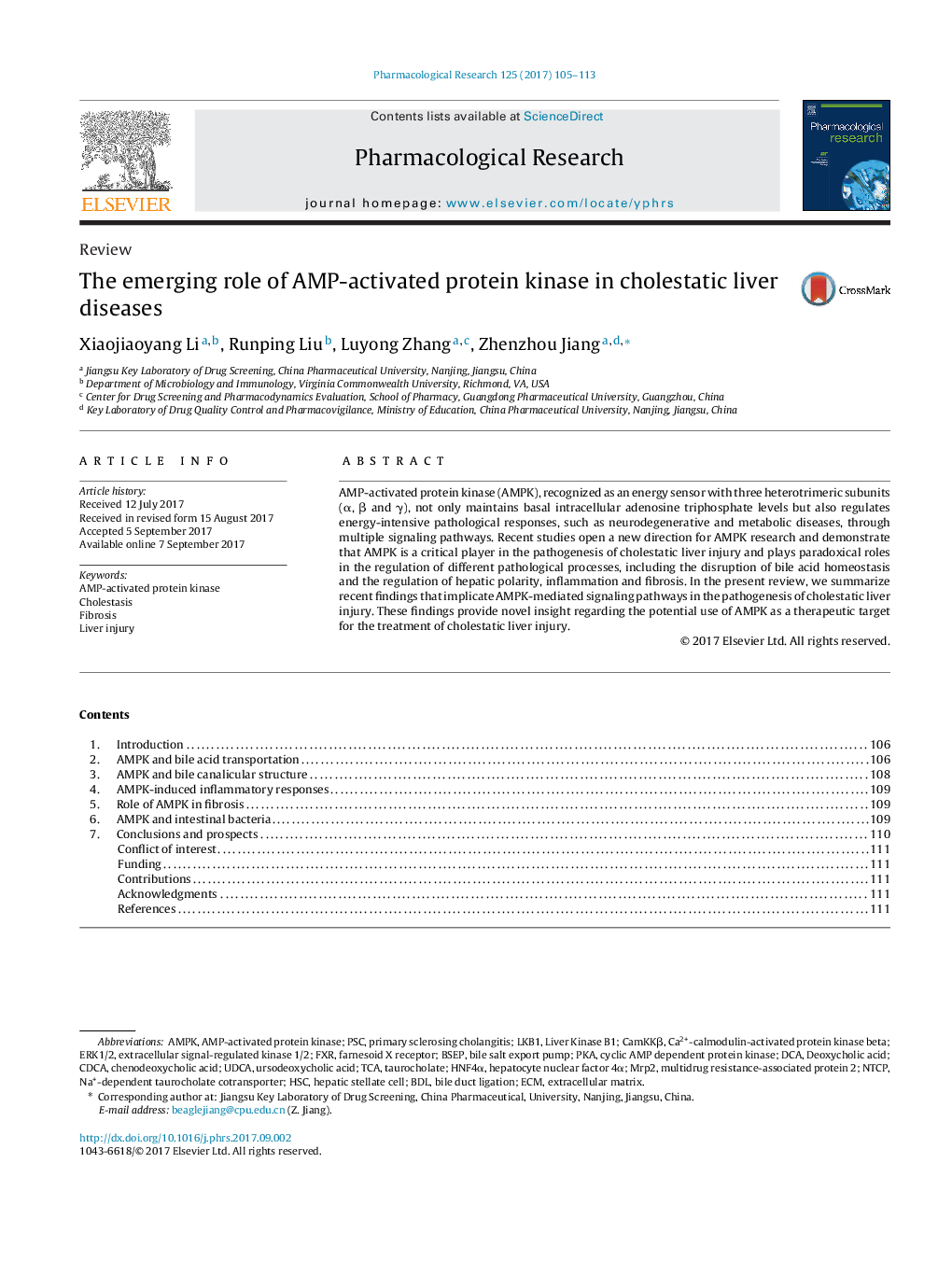| Article ID | Journal | Published Year | Pages | File Type |
|---|---|---|---|---|
| 5557179 | Pharmacological Research | 2017 | 9 Pages |
AMP-activated protein kinase (AMPK), recognized as an energy sensor with three heterotrimeric subunits (α, β and γ), not only maintains basal intracellular adenosine triphosphate levels but also regulates energy-intensive pathological responses, such as neurodegenerative and metabolic diseases, through multiple signaling pathways. Recent studies open a new direction for AMPK research and demonstrate that AMPK is a critical player in the pathogenesis of cholestatic liver injury and plays paradoxical roles in the regulation of different pathological processes, including the disruption of bile acid homeostasis and the regulation of hepatic polarity, inflammation and fibrosis. In the present review, we summarize recent findings that implicate AMPK-mediated signaling pathways in the pathogenesis of cholestatic liver injury. These findings provide novel insight regarding the potential use of AMPK as a therapeutic target for the treatment of cholestatic liver injury.
Graphical abstractDownload high-res image (125KB)Download full-size image
